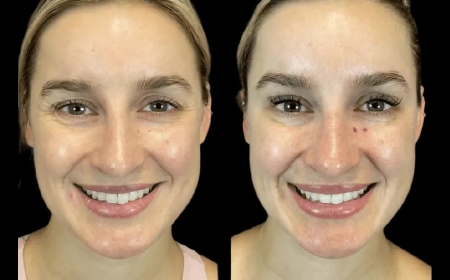Bilingual Answering Services in Healthcare
Bilingual answering services by virtual medical assistants improve patient access, enhance communication, and support diverse healthcare needs.

Bilingual Answering Services: Connecting Virtual Healthcare to Diverse Communities
The increasing demand for virtual healthcare services is reshaping how medical providers interact with their patients. As telemedicine continues to expand, ensuring that communication is accessible and effective for all patients has never been more critical. One essential component of this evolution is the Bilingual Answering Service.
Offering bilingual support through Virtual Medical Assistants not only enhances patient satisfaction but also supports healthcare providers in delivering equitable care. This article will dive deeper into the importance of bilingual answering services, their practical impact on healthcare delivery, and how they contribute to building stronger patient relationships in a virtual care setting.
Understanding Bilingual Answering Services
A Bilingual Answering Service enables medical practices to offer communication in two or more languages, ensuring that patients can comfortably receive assistance, book appointments, and obtain medical information in their preferred language.
Unlike traditional in-person front desk staff, virtual bilingual medical answering services are typically handled by trained Virtual Medical Assistants who specialize in remote communication and are proficient in both languages, often English and Spanish.
These services are vital in communities with diverse populations, where language differences can significantly impact the quality and timeliness of care.
Why Bilingual Answering Services Matter in Virtual Healthcare
Virtual healthcare thrives on accessibility. However, many patients still face language barriers that prevent them from fully utilizing these services. Bilingual answering services help to remove these obstacles by providing immediate, understandable communication to patients in their own language.
Key reasons bilingual answering services are essential in virtual healthcare:
-
Ensure clear communication for non-English speaking patients.
-
Improve appointment scheduling accuracy.
-
Provide a sense of comfort and trust for patients.
-
Prevent miscommunication that could lead to health risks.
-
Expand the reach of telehealth providers to multilingual communities.
Healthcare providers who invest in Bilingual Answering Services through Virtual Medical Assistants demonstrate a commitment to inclusive and patient-centered care.
Core Advantages of Bilingual Answering Services
1. Patient Trust and Loyalty
Patients are more likely to return to a medical provider when they feel understood and respected. Bilingual services help foster a long-lasting connection between healthcare providers and their patients.
2. Efficient Call Management
Virtual bilingual teams can manage large call volumes effectively. Calls are answered promptly and routed correctly, reducing patient wait times and ensuring seamless operations.
3. Reduced Errors
Accurate medical communication is critical. Bilingual answering services help minimize misunderstandings related to prescriptions, appointment times, and medical instructions.
4. Boosted Revenue Opportunities
Practices that offer services in multiple languages can serve a broader demographic, increasing their patient base and revenue streams.
5. Enhanced Cultural Competency
Bilingual Virtual Medical Assistants are often trained not only in language proficiency but also in cultural sensitivity, ensuring that patient interactions are respectful and appropriate.
How Bilingual Virtual Medical Assistants Operate
Virtual Medical Assistants with bilingual capabilities handle a wide range of tasks that directly support both patients and medical teams.
Common responsibilities include:
-
Answering Patient Calls: Communicating fluently in the patients preferred language.
-
Managing Virtual Appointment Scheduling: Ensuring clarity on dates, times, and preparation instructions.
-
Providing Telehealth Guidance: Assisting patients in logging into telemedicine platforms and understanding the process.
-
Coordinating Follow-Ups: Booking follow-up visits and explaining aftercare instructions.
-
Relaying Messages Securely: Ensuring that critical patient information is passed on accurately to healthcare providers.
By leveraging Virtual Medical Assistants, practices can provide bilingual support cost-effectively, without the need for additional in-house staff.
Bilingual Answering Services: A Critical Asset for Virtual Practices
Many patients delay or avoid seeking care simply because they do not feel comfortable speaking English. In virtual healthcare, where the phone is often the first and only point of contact, this barrier can be detrimental.
Key benefits of offering bilingual services in virtual practices:
-
Removes anxiety for non-English speakers.
-
Promotes health literacy by ensuring patients fully understand their health status and care instructions.
-
Increases the likelihood of patients following through with treatment plans.
-
Improves overall patient safety.
Virtual Medical Assistants who provide bilingual answering services help eliminate these barriers, offering an efficient and friendly bridge between healthcare providers and their patients.
Expanding Language Support: Beyond English and Spanish
While English and Spanish remain the most commonly supported languages, many Virtual Medical Assistants can offer services in other languages, including:
-
Mandarin
-
French
-
Vietnamese
-
Arabic
-
Tagalog
By expanding language offerings, virtual medical practices can reach even more patients from various backgrounds.
Building a Multilingual Virtual Healthcare Strategy
To successfully implement bilingual or multilingual answering services, virtual medical practices should focus on the following steps:
1. Analyze Patient Demographics
Identify the languages most commonly spoken by your patient population to tailor language offerings accordingly.
2. Choose Specialized Bilingual Virtual Medical Assistants
Select highly skilled professionals who are fluent in both languages and trained in healthcare communication.
3. Integrate Technology
Utilize software that supports bilingual call routing, secure messaging, and telehealth appointment management.
4. Train for Cultural Sensitivity
Go beyond language and provide cultural competency training to ensure staff understand cultural nuances that may affect patient interactions.
5. Continuously Monitor Service Quality
Regularly assess the quality of bilingual interactions to ensure accuracy, empathy, and professionalism.
Practical Use Cases of Bilingual Answering Services
Bilingual answering services are particularly beneficial in these areas of virtual healthcare:
-
Primary Care Telehealth Clinics
-
Virtual Urgent Care Services
-
Mental Health Teletherapy
-
Chronic Care Management Programs
-
Medical Weight Loss Consultations
-
Hormone Replacement Therapy Clinics
In all these fields, clear communication is crucial, and the added language support significantly enhances the patient experience.
Why Choose Virtual Medical Assistants for Bilingual Answering Services?
Here are the reasons why Virtual Medical Assistants are the preferred choice for delivering bilingual answering services:
-
Cost-Efficient: Lower operational costs compared to hiring bilingual staff on-site.
-
Highly Trained: Specialized training in medical protocols and bilingual communication.
-
Scalable: Services can be easily adjusted based on call volume and patient needs.
-
Available Across Time Zones: Virtual teams offer flexibility to support multiple time zones, including after-hours services.
By utilizing Virtual Medical Assistants, healthcare providers can ensure uninterrupted, multilingual support without the overhead expenses of in-house staffing.
Frequently Asked Questions (FAQs)
1. How does a bilingual answering service benefit virtual medical practices?
It improves patient communication, reduces miscommunication, expands access to care, and helps practices build trust with diverse communities.
2. Can bilingual answering services handle medical emergencies?
Bilingual answering services are typically trained to triage calls and escalate emergencies to on-call healthcare providers or direct patients to emergency services.
3. Do virtual bilingual assistants require special certifications?
While medical certification isnt always mandatory, reputable services ensure that their Virtual Medical Assistants are thoroughly trained in healthcare communication, HIPAA compliance, and bilingual protocols.
4. How do I ensure the quality of bilingual answering services?
Choose providers with strict quality assurance programs, multilingual proficiency tests, and positive client reviews to guarantee professional service delivery.
5. Is it possible to customize the bilingual answering process for my practice?
Yes, most virtual answering services offer customizable call scripts, preferred language routing, and specific escalation procedures to match your practices workflow.
6. What is the cost difference between bilingual and monolingual virtual answering services?
Bilingual services may carry slightly higher fees due to language specialization, but they remain more affordable than hiring on-site bilingual staff.
Conclusion
In an increasingly connected world, Bilingual Answering Services are essential for any virtual medical practice aiming to provide inclusive and accessible healthcare. By offering support in multiple languages, practices can remove critical barriers, strengthen patient-provider relationships, and serve a wider community with confidence.
Virtual Medical Assistants bring efficiency, flexibility, and compassion to bilingual answering services, enabling healthcare providers to deliver exceptional care regardless of language differences.
Embracing bilingual services is not just a business strategyits a commitment to patient-centered care and health equity.












































